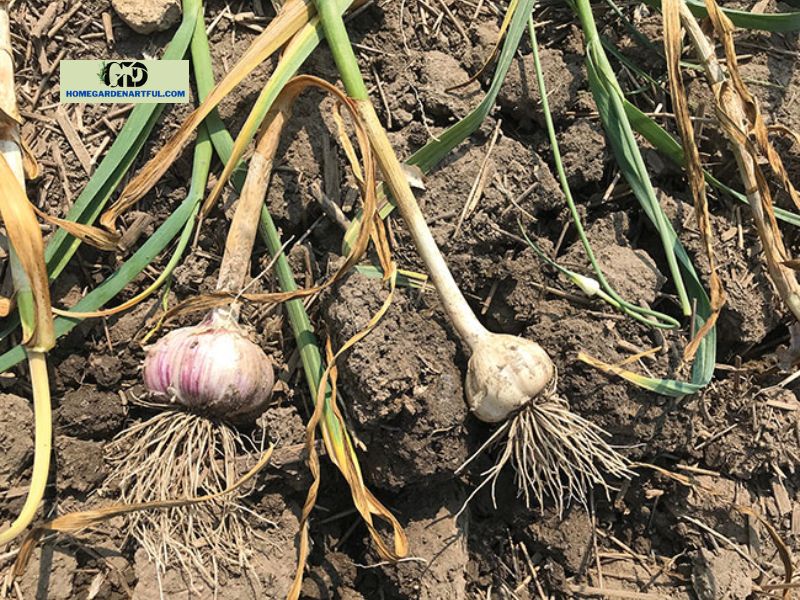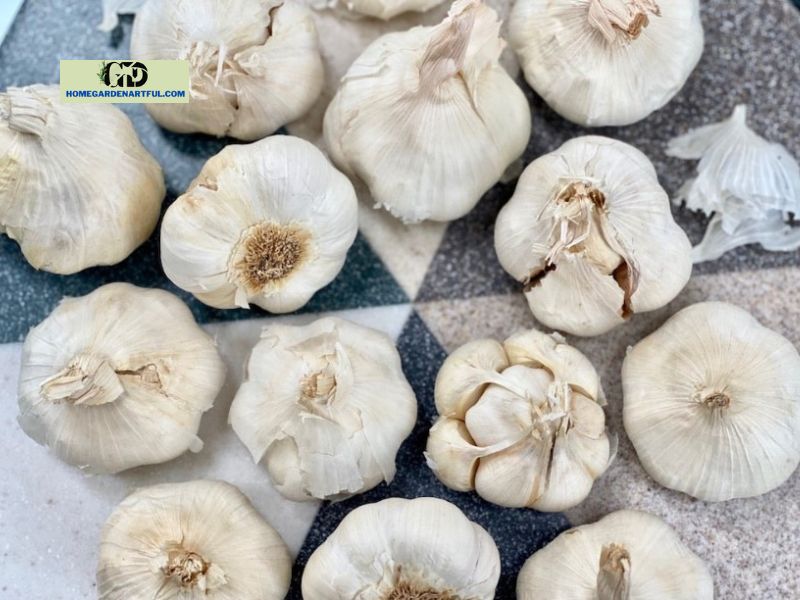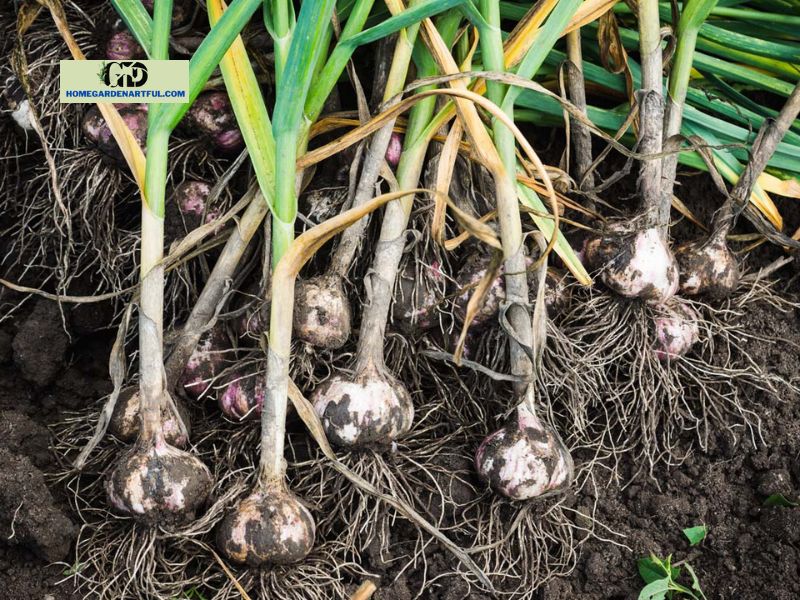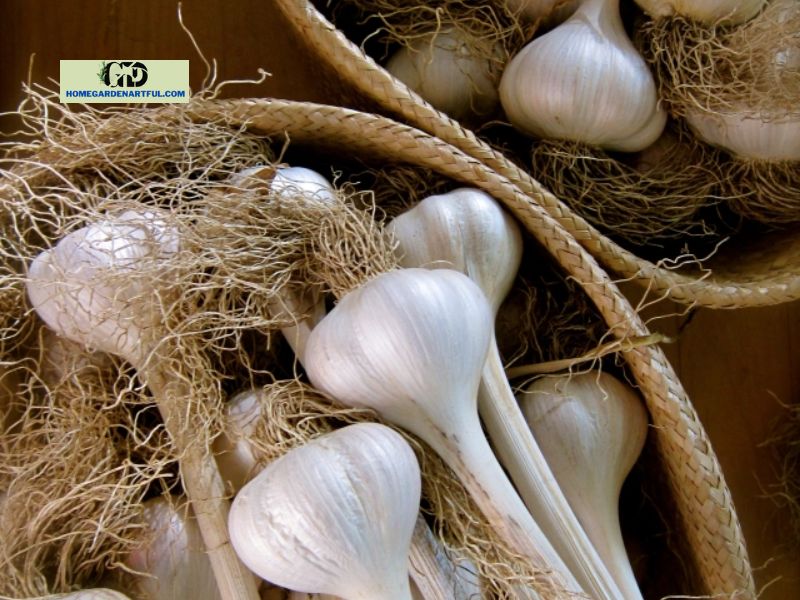Is Garlic A Nightshade? At homegardenartful.com, learn more about nightshade vegetables and plants by reading this article. You might be startled to learn that thousands of vegetable and plant species are classified as nightshades. Celery, yam, eggplant, and even sweet potatoes are among them.
Is Garlic A Nightshade?

Nightshade veggies are those that contain the chemical solanine. In some people, this chemical can cause inflammation as well as arthritic pain. However, the amount of solanine in these veggies is minimal and will not damage most people. Those who suffer these symptoms, however, should avoid them totally or limit their intake.
The nightshade family contains potent antioxidants such as vitamins C and A. They are also abundant in fiber, which may help to lower the risk of chronic disease. They are, however, not required for human health. Limiting food consumption may be useful for persons who have food allergies.
Eggplants, tomatillos, tomatoes, potatoes, as well as Goji berries are also nightshade vegetables. Some people are allergic to nightshades and should consult a doctor before eliminating them from their diet. People with leaky gut syndrome, autoimmune diseases, or digestive disorders are also at risk. Look for particular indicators of nightshade intolerance, like skin redness, joint discomfort, or digestive issues, if you feel you have it. People experiencing these symptoms ought to stay away from nightshade vegetables till their symptoms subside.
What Exactly Are Nightshade Vegetables?
Plants in the Solanaceae family are diverse. They have an assortment of annual and perennial herbs, shrubs, lianas, and trees. Many of these plants are both therapeutic and decorative. This essay will concentrate on some of the most commonly encountered nightshade plants.
The alkaloids present in nightshade plants have been linked to the onset of autoimmune disorders in some persons. However, research has not established a link. IBD (inflammatory bowel disease) is an autoimmune disease. Inflammatory bowel disease is an inflammation of the digestive system lining. IBD patients have compromised the protective cells lining their intestines, resulting in increased permeability. This disorder is also known as a “leaky gut.”
Nightshade vegetable allergies are difficult to identify. However, they can cause hives and skin rashes. Some people report throat irritation and swelling as well. In severe circumstances, these reactions might make breathing difficult. In such instances, you must discontinue the use of nightshade and visit your doctor.
What Exactly Are Nightshade Foods?

Nightshade foods include a high concentration of the chemical glycoalkaloids. Plants produce these compounds, which are hazardous to people and animals. The skin of nightshade plants and fruits contains significant quantities of this chemical. They may trigger inflammation and toxicity in the body.
Lectins found in nightshade vegetables affect the intestinal barrier. Food that should stay in the small intestine enters the bloodstream as a result of this. As a result, the immune system starts attacking healthy cells, resulting in inflammation and tissue death. Furthermore, the natural chemicals found in nightshade vegetables might enhance the immune system. As a result, people with inflammatory conditions should avoid these meals entirely.
Individuals with certain health issues may benefit from avoiding nightshade foods. Leaky gut syndrome and autoimmune illness are two examples. Fortunately, these items can be replaced with healthier alternatives. Brussels sprouts, Avocados, and Jerusalem artichokes are among them.
What Exactly Are Nightshade Plants?
Nightshade plants are Solanaceae plant family members that are common in the Western diet. Many of these items are healthful and have long been part of a balanced diet. Chile peppers, for instance, contain capsaicin, which promotes hair growth and may lower the risk of cancer, heart disease, and stroke. In contrast, potatoes are high in mood-regulating carbs and muscle-building protein.
There are several edible and deadly plants in the nightshade family. Tomatillos are included in the group, along with tomatoes, eggplant, and potatoes. Several nightshades are cultivated as crops, while others are used medicinally. Many people do not consider nightshades to be meals, despite their names, yet they are.
Nightshade veggies cause sensitivity in certain persons. These veggies’ solanine content can trigger arthritic pain or inflammation. However, because the solanine level is modest, most people are unaffected. Those who suffer from these symptoms are most likely sensitive to solanine.
Sweet potatoes are members of the Nightshade family

Many vegetables, including potatoes, are members of the nightshade family. Some of these vegetables include glycoalkaloids, which might increase intestinal permeability and contribute to “IBS” symptoms. Others contain alkaloids such as capsaicin, which can cause gastrointestinal inflammation.
If you feel you are sensitive to nightshades, the first step is to avoid them for a few weeks. Then, keep an eye on your symptoms to see whether they improve. You should be able to develop a tolerance to nightshades over time.
Many key crops, including potatoes, are members of the nightshade family. Sweet potatoes, on the other hand, are not related. In Peru and South America, potatoes were domesticated. The term “spud” is thought to be derived from the Latin word for a potato spade.
Some people have nightshade intolerance, which means they are unable to digest certain nutrients in their bodies. To avoid difficulties caused by nightshade sensitivity, it is best to limit sweet potato consumption in these circumstances.
The Untold Story of Garlic and Bell Peppers
Bell peppers and garlic complement each other well. Both are nightshade family members that are extensively consumed. These veggies are native to North and South America and are in season in the United States during the summer and fall. Bell peppers can be green or red, depending on the type, with red peppers having higher quantities of antioxidants and phytonutrients. They also have more potassium.
Bell peppers are low in calories and high in fiber when consumed in moderation. A three-ounce portion of bell peppers also includes 66 milligrams of vitamin C, which is close to the daily minimum for the majority of people. Bell peppers come in a variety of colors and are sometimes branded as sweet peppers, despite the fact that the sweet flavor is a byproduct of the cooking process. Bell peppers, on the other hand, are available in fiery variants, making them an excellent accent to any dish.
Is Garlic Beneficial for Inflammatory Bowel Disease?
Garlic is a well-known medicinal spice with numerous health advantages. It includes chemicals that strengthen the immune system and help the body fight illnesses. It also boosts the amount of beneficial bacteria in the digestive tract. As a result, it has become a staple in our cuisine and eatable garlic is regarded as safe.
Garlic polysaccharides contain anti-inflammatory, anti-oxidative, and immunomodulatory activities, according to research. Few research, however, have looked at how garlic impacts the colon and intestinal bacteria. Garlic polysaccharides were found to reduce dextran sulfate sodium-induced colitis in mice in one study.
Garlic also reduces the generation of Th1 cytokines, which are inflammatory cytokines. IL-6, IL-12, and interferon-gamma are a few examples. These chemicals are critical components of the immune system, directing the Th1 immune response.


